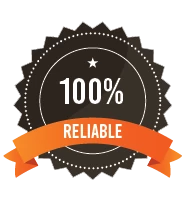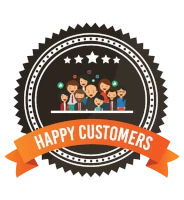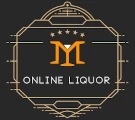The Psychology of Alcohol Marketing: Decoding Strategies and Consumer Impact

Explore the intricate psychology behind alcohol marketing strategies, from creating aspirational lifestyles to evoking emotional connections, shaping consumer perceptions and preferences.
In today's consumer-driven world, marketing plays a pivotal role in shaping perceptions, influencing behaviors, and ultimately driving sales. When it comes to liquor products, the strategies employed are not only about promoting the drink itself but also about creating desirable associations, fostering emotional connections, and appealing to subconscious desires. Let's delve into the psychology behind alcohol marketing and explore how these strategies impact consumers.
It is advisable to have alcohol/liquor drinking license in Maharashtra. You can apply online for alcohol/liquor drinking liquor license here : Click Here to Apply Now
1. Creating Desirable Associations
Alcohol marketing often relies on creating associations with desirable lifestyles, aspirations, and social statuses. Brands carefully craft their imagery, using settings like luxury yachts, exclusive parties, or sophisticated urban environments. By aligning their products with these aspirational contexts, they aim to make consumers associate their brand with success, prestige, and enjoyment.
Psychological Impact: This strategy taps into consumers' desire for social acceptance and status. By presenting their product as a symbol of sophistication or social inclusion, brands can influence purchasing decisions based on the emotional appeal of belonging to a certain lifestyle.
2. Emotional Branding
Effective alcohol marketing goes beyond showcasing the product; it tells a story and creates emotional connections. Advertisements often focus on themes like friendship, celebration, romance, or adventure, aiming to evoke positive emotions and nostalgia.
Psychological Impact: Emotions play a significant role in consumer decision-making. When a brand can evoke positive feelings through their marketing, such as joy during celebrations or relaxation after a hard day, consumers are more likely to develop a preference for that brand as it becomes associated with those positive emotions.
3. Influencing Perceptions of Quality and Craftsmanship
Many liquor brands emphasize their heritage, craftsmanship, and quality through their marketing campaigns. They highlight traditional production methods, premium ingredients, and the expertise of master distillers. This approach aims to position their product as superior and worthy of premium pricing.
Psychological Impact: Consumers often perceive higher-priced products as being of better quality. By emphasizing craftsmanship and heritage, brands not only justify higher prices but also appeal to consumers who value authenticity and tradition in their purchasing decisions.
4. Social Influence and Peer Pressure
Alcohol marketing frequently incorporates social proof and peer influence. This can be seen in endorsements by celebrities, influencers, or testimonials from satisfied consumers. Social media platforms amplify this effect, with user-generated content and influencer partnerships playing a crucial role in brand visibility and credibility.
Psychological Impact: Social influence triggers the concept of "social proof," where individuals are more likely to adopt behaviors or make choices that they see others engaging in. By showcasing endorsements and testimonials, alcohol brands leverage this psychological phenomenon to persuade consumers that their product is popular, desirable, and worth trying.
5. Appeal to Novelty and Exclusivity
Limited editions, special releases, and unique flavor profiles are often used to create a sense of exclusivity and urgency among consumers. These marketing tactics capitalize on the fear of missing out (FOMO) and the desire to be among the first to experience something new and exciting.
Psychological Impact: The appeal of novelty triggers curiosity and a sense of anticipation. Limited editions and special releases create scarcity, which enhances perceived value and can drive impulse purchases as consumers seek to own something unique or collectible.
Conclusion
In conclusion, alcohol marketing strategies are deeply rooted in psychology, leveraging emotional appeals, social influences, and perceptions of quality and status to influence consumer behavior. By understanding the psychological mechanisms behind these strategies, consumers can become more aware of how marketing affects their choices and make informed decisions. As the industry continues to evolve, so too will the strategies employed to capture attention, create desire, and ultimately drive sales in the competitive landscape of alcohol marketing.
How to get drinking liquor license : Click Here to Apply Now












